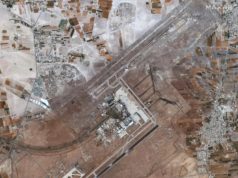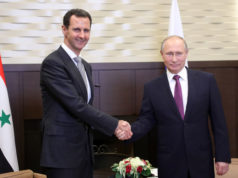The UN Security Council is holding a high-level session with foreign ministers Thursday to discuss the humanitarian crisis in Syria — where 2.5 million people are in need of assistance and 200,000 to 300,000 Syrians have been displaced as a result of the 18-month civil war. Although the council has yet to agree on how to handle Syrian President Bashar al-Asad, French Ambassador Gérard Araud told reporters that he hopes members can agree on a position in dealing with the humanitarian issue.
But even that seems unlikely. The meeting will not include ministers from three of the Security Council’s permanent members — the U.S., China, and Russia — putting the gathering’s importance into question and signaling that Washington believes it has exhausted all options at the council. Ministers from Syria’s neighboring countries of Turkey, Lebanon, and Jordan — all dealing with fallout from the crisis — will be in attendance.

Syrian refugee children at a Turkish Red Crescent camp near the Syrian border. (Photo: Mustafa Ozer/AFP/Getty Images) |
Turkey, which has taken in over 80,000 refugees since the start of the Syrian uprising, is using the meeting to press the UN to establish a safe zone inside Syria to protect fleeing refugees. Such a safe haven could only work alongside the imposition of a no-fly zone, which means foreign military intervention to protect civilians — a deal Russia and China have showed no interest in. But Turkey says it is approaching its limits in its ability to cope; up to 5,000 Syrians arrive each day to its refugee camps. Some 10,200 refugees arrived to a Jordanian camp this past week alone, where estimates for the number of refugees range from 60,000 to 150,000. And Lebanon, with some 50,000 registered refugees, has witnessed fighting between supporters and opponents of the Syrian regime.
On Wednesday, the pro-regime Dunya TV in Syria aired an hour-long interview with Asad in which he dismissed talk of a buffer zone inside Syria, calling it “not practical.” Of course, a safe zone is feasible. The option remains for Western powers to create an international force outside of the United Nations for the purpose of establishing one. The only element preventing such action is political will. But as time passes and Syria’s spillover effect continues to mount, Western powers may rethink their conclusion that the cost of creating a buffer zone outweighs the benefits.





